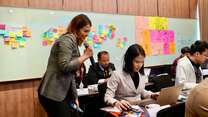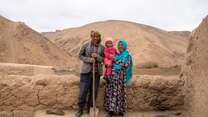The ParticipACTION initiative aims to elevate the voices of young people aged 16 to 23, with a focus on third-country nationals (TCNs), migrant youth, women, and girls, by promoting their involvement in decision-making at the local, national, and European Union levels. This report, informed by desk-based research, Focus Group Discussions (FGD), survey, interviews, interactive seminar and roundtable conducted in Lithuania, examines the levels of awareness, understanding, and participation among youth in democratic processes, the obstacles they face and the solutions they propose. The findings reveal that many young individuals have limited awareness of EU institutions, however, were quite well informed about EU programmes and initiatives, such as Erasmus+ and the European Solidarity Corps, even though many young people still are not taking part in these programmes. Although some feel increasingly connected to the idea of European citizenship, substantial knowledge gaps remains. Young people are generally more involved in local initiatives, where they feel a greater sense of connection and significance. In contrast, the EU is often viewed as distant and overly complex. A key barrier to participation is the widespread perception among youth that their voices are ignored, lack influence or fail to have a real impact. These challenges are even more pronounced for TCNs, who often face additional linguistic and cultural barriers that further hinder their engagement. Suggestions from both youth and relevant stakeholders consistently emphasize the importance of expanding civic education, offering firsthand experiences and activities that provide an opportunity to discuss and debate their views and opinions, encouraging peer-led learning and creating inclusive outreach strategies. Policy recommendations stress the need to reinforce civic learning, develop inclusiveness strategies among different groups, foster trust through open and transparent practices and ensure young people, including TCNs, receive the necessary support and mechanisms to access opportunities fairly and make their voice count.
Report
Our efficiency
- 87% Program services
- 7% Management and general
- 6% Fundraising
Copyright © International Rescue Committee, 2026.



